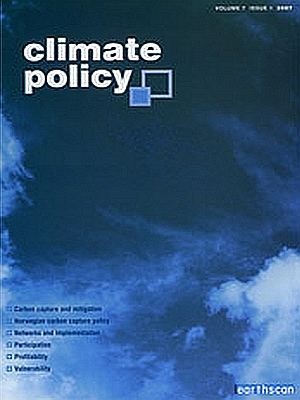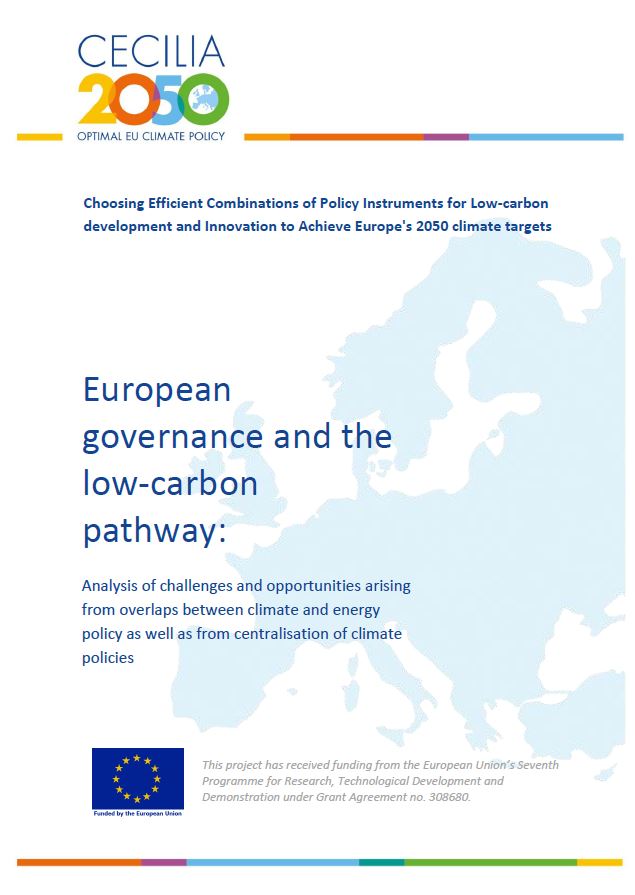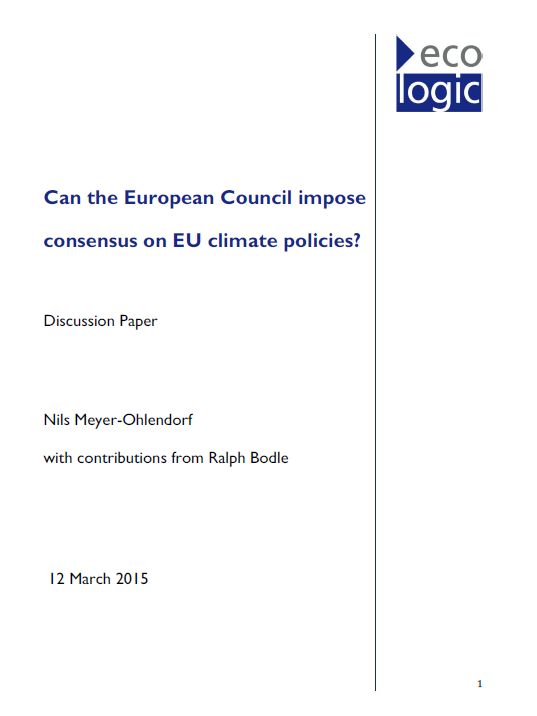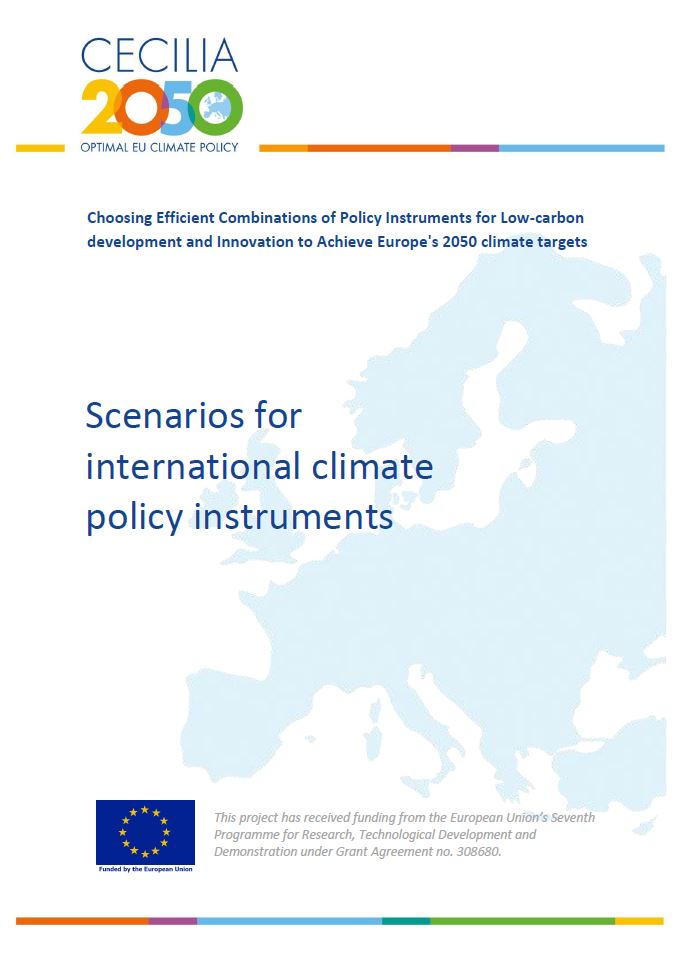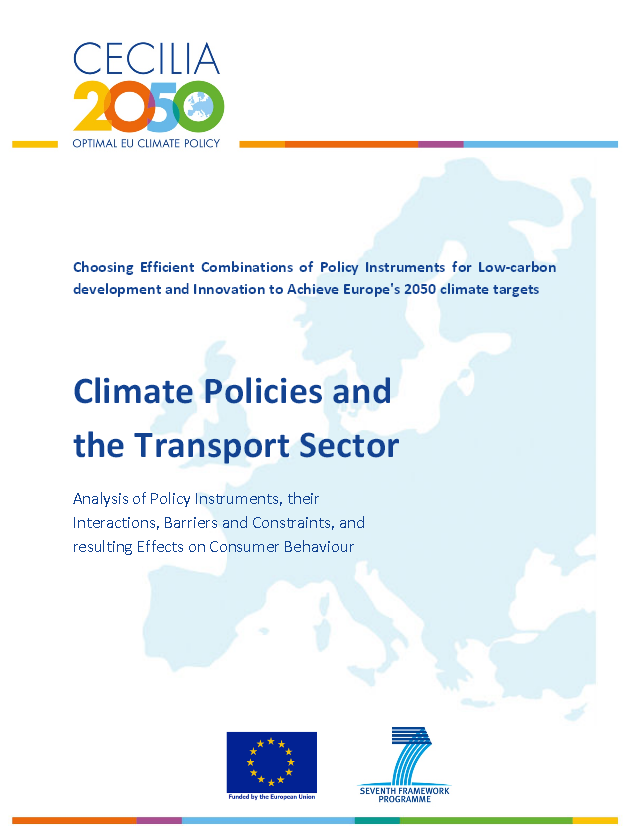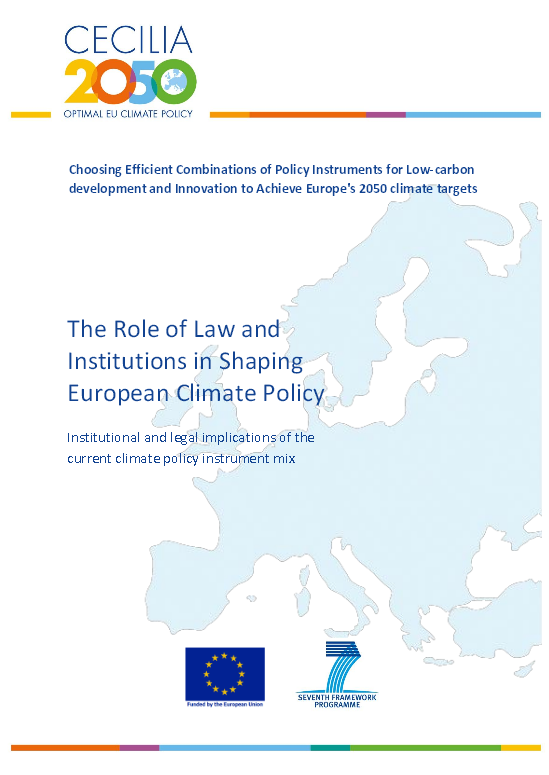Combining Policy Instruments to Achieve Europe's 2050 Climate Targets (CECILIA2050)
- Project
- Research Program
- Duration
-
-
A new Ecologic Institute led research project on EU climate policy, called "CECILIA2050" has taken off with an internal kick-off meeting, the website launch and a first public event at the climate summit in Doha, Qatar. The three-year project is to draft recommendations for a suitable mix of instruments to help the EU achieve the 2050 emission reduction targets set by Heads of State and Government in 2009.
Europe needs to transform itself to a low-carbon economy by mid-century. The existing instrument mix needs to be scaled up drastically to initiate the changes needed across the economy. As the scale and scope of instruments increases, their interaction becomes more important, as do constraints on the political, legal and administrative feasibility. The CECILIA2050 project analyses the performance of existing climate policy instruments and their interaction, and maps pathways for the evolution of the instrument mix in Europe.
The project will describe ways to improve the economic efficiency and environmental effectiveness of the instrument mix, and to address constraints that limit their performance or feasibility. These include public acceptance, availability of finance and the physical infrastructure, but also the administrative and legal framework.
The first, backward-looking part of the project takes stock of the existing instrument mix in the EU and its Member States, and assesses their coherence and past performance. It describes which factors determine their efficiency and effectiveness, and measures their effects on equity, innovation and competitiveness.
The second, forward-looking part maps pathways towards a more ambitious policy mix for 2030 and 2050, starting from the current EU climate policy. With economic instruments at the heart of the mix, it describes and models how the instrumentation could evolve, based on scenarios of the magnitude of change required for the low-carbon transformation. To this end, it combines the state of the art modelling tools with qualitative and participatory methods. To complement the EU-level analysis, the effects of EU climate policies are quantified at the global level. To ensure policy relevance and mobilise practitioners’ knowledge, the project engages with stakeholders in a variety of ways.






